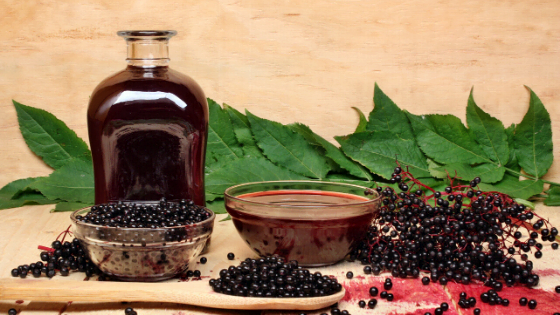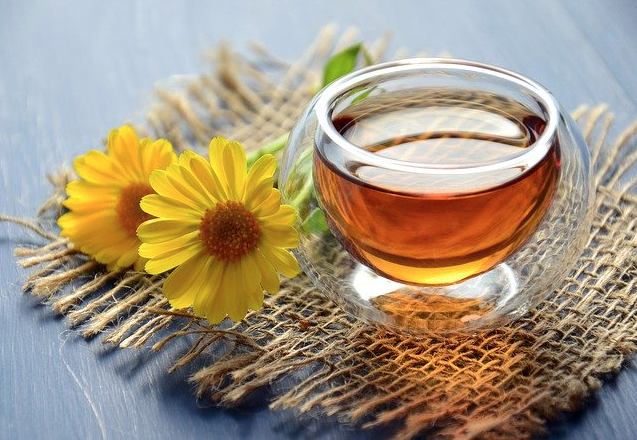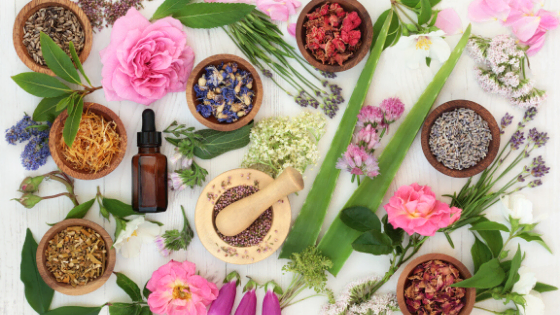Since prehistoric times, herbs have been used to treat ailments. Documents dating back to 4th century BC have been unearthed, from ancient Sumeria (modern-day Iraq & Kuwait) and ancient Egyptian civilizations that their ancestors used medicinal plants as remedies for common illnesses.
Ayurveda, which finds its roots in ancient scriptures like Atharva Veda and Sushruta Samhita, is an ancient method of treating patients that is still prevalent in India today. Currently, the use of herbs and spices to maintain the natural equilibrium of the body is becoming more popular in the states, which is often thrown off balance due to the excessive use of modern medicine.
These medicinal herbs are known to boost the body's defense system naturally and help patients reduce the intake of chemical-based medications:
- Echinacea- commonly known as coneflower, is a herbaceous plant native to Central America & Canada. Belonging to the daisy family, it has around ten species. Usable parts of the plant are its flowers, leaves, and roots. Infusion derived from flowers and leaves is mainly used for treating upper respiratory tract infections. Echinacea has been recognized as an effective immune stimulator and helps in treating colds, coughs, throat pain, and flu. It is also used to cure skin boils, wounds, or burns. It is recommended to use Echinacea in commercially available forms such as extracts, juices, tea, and supplements.
- Goldenseal- also known as orangeroot, primarily grown in Eastern US & southeastern Canada, is a herb known to native Americans. Its medicinal benefits range from treating digestive disorders, diarrhea, liver conditions to the skin, eye irritation & toenail fungus. It can be used as an expectorant and soothes enlarged sinus & sore throat. Goldenseal is available in the form of tincture, tea, capsule, powder, and even creams or ointments to heal skin wounds.
- Japanese honeysuckle- native to eastern Asia (Japan & Korea), it is often planted as an ornamental & medicinal plant. It is widely grown & harvested in various parts of the US because of its analeptic properties, but has been facing wrath due to its rapid growth & invasive nature. It has been found helpful in reducing the inflammation of intestines and dysentery, relieving the symptoms of upper respiratory tract infections such as common cold, flu, swine flu, pneumonia, and bronchitis.
The flowers are infused in alcohol to derive tincture, and they can be added to tea as well, along with mint to relieve headaches. Usually, the medications are available in the form of tonic, infusion, decoction, syrups.
- Elderberry- is a dark purplish berry-like fruit from the European elder tree which grows in bunches. The juice extracted from these fruits is known to enhance immunity against the common cold, flu, and allergic rhinitis. It also helps in alleviating sinus pain, muscular pain in legs, and general feelings of fatigue. It can even relieve constipation and regulate healthy bowel movements. Elderberry is readily available commercially in the form of juice, syrup, lozenges, gummies, and tea.
- Basil- is a tropical climate herb and doesn't thrive well in cool weather. There are several species of basil, but not all of them have medicinal properties. Indian basil called tulsi is used in Ayurvedic medicines due to the presence of antioxidants and minerals. It helps in combating colds and is known to possess anti-fungal, antibacterial properties. It is also an insect repellant, particularly against mosquitoes. Although it's available commercially in the form of tea mixed with green tea, it's best to use it in raw form. You can add fresh basil leaves in your brewing tea or even chew them on. Cooking likely reduces its medicinal benefits.
- Rosemary- is an aromatic herb belonging to the Mediterranean region. Being a rich source of anti-inflammatory compounds and antioxidants, it offers immune-boosting properties. Rosmarinic acid, an active ingredient found in rosemary, is known to alleviate seasonal allergies and rhinitis.
The use of rosemary oil has been recommended to attenuate baldness & hair loss and aids in diminishing the symptoms of eczema and dermatitis. Due to its pleasant fragrance, rosemary leaves are used in perfumes & colognes.
- Lemon Balm- Native to south-central Europe and the Mediterranean region, Lemon Balm is best known for its lemon scent, and the tea extract and oil derived from the leaves are familiar for aromatherapy sessions.
The use of lemon balm is associated with mood enhancement, anxiety reduction, and cognitive performance. It is used in herbal medicines to relax the mind and induce sleep and is available in the form of tea, balms, and lotions as well. Lemon Balm can have therapeutic effects in treating stomach & liver issues due to its antioxidants. Recent studies have shown a surge in the immune system with continued use of this herb. - Sage- a perennial herb with its grayish green leaves used to make medicines that help in curing flatulence, gastritis, diarrhea, bloating, and heartburn. Due to its aroma and nutritive properties, it is used in various cuisines and is useful in improving the palate. People also consume sage to improve their memory & brain health and to prevent amnesia.
It can assist in lowering the blood sugar as well as cholesterol levels in the blood. Sage plants can readily be grown in the garden and can be used every day in soups, omelets, seasoning while baking along with vegetables to enhance the flavor. It is commercially available in the form of sage tea and sage extract supplements.
While these herbs are known for their medicinal benefits and were utilized by our ancestors, effects are not immediate and are most valuable as a preventive treatment. Usually, it's not a good idea to intake them regularly, but instead, be consumed when the weather is changing or before the onset of flu season to boost up immunity.















